Home>Garden Essentials>What Degree Is Needed For Landscape Design
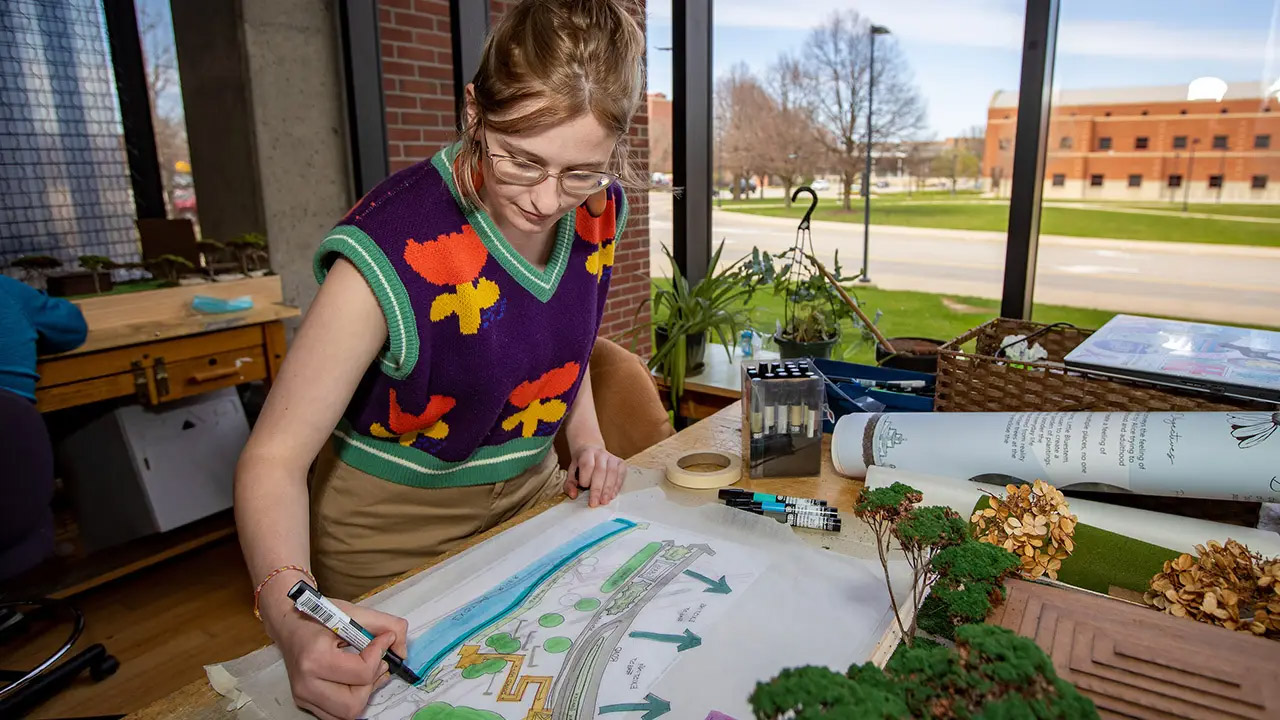

Garden Essentials
What Degree Is Needed For Landscape Design
Modified: March 7, 2024
Learn what degree is needed for garden landscape design and start your career in creating beautiful outdoor spaces with this comprehensive guide.
(Many of the links in this article redirect to a specific reviewed product. Your purchase of these products through affiliate links helps to generate commission for Storables.com, at no extra cost. Learn more)
Introduction
Welcome to the world of landscape design, where creativity meets nature and transforms outdoor spaces into stunning works of art. Whether you have a passion for plants, a knack for design, or a desire to create beautiful and functional outdoor environments, a degree in landscape design can be an excellent choice to pursue your dreams. In this article, we will explore the importance of obtaining a degree in landscape design, the career opportunities it offers, the essential skills required for success in this field, the benefits of pursuing a degree, and some top universities that offer suitable programs.
One might wonder, is a degree in landscape design really necessary? Can’t one simply rely on natural talent and practical experience? While it is true that a keen eye for design and a love for nature are essential qualities, a degree in landscape design can provide you with a solid foundation of knowledge and skills that will elevate your expertise and set you apart from the competition.
With a degree in landscape design, you will be equipped with both the theoretical understanding and the practical know-how necessary to create breathtaking outdoor spaces. You will gain valuable insight into various aspects such as plant selection, garden layout, hardscape design, environmental sustainability, and project management. This knowledge will enable you to approach your projects with a well-rounded perspective and deliver exceptional results that are both aesthetically pleasing and functional.
Moreover, obtaining a degree in landscape design opens up a world of career opportunities. As the demand for creating beautiful outdoor spaces continues to grow, there is an increasing need for skilled professionals who can transform landscapes into inviting and sustainable environments. With a degree in hand, you can explore a variety of career paths, including working for landscape design firms, architectural firms, urban planning agencies, botanical gardens, public parks, or even starting your own design consultancy.
In addition to the technical skills, a successful landscape designer possesses a range of essential attributes. Strong communication skills are crucial as you will need to effectively communicate with clients, contractors, and other professionals involved in the project. Attention to detail is also important to ensure that every element of the design is carefully considered and executed. Additionally, creativity, problem-solving abilities, and a passion for the environment will contribute to your success in this field.
Now that we have discussed the importance of a degree in landscape design and the skills required, let’s explore the benefits of pursuing a formal education in this area. By enrolling in a degree program, you will have access to experienced faculty who can guide you through the complexities of landscape design and provide valuable insights. You will also have opportunities for hands-on learning through internships and real-world projects, allowing you to apply your skills and gain practical experience in the field.
When considering pursuing a degree in landscape design, it is vital to choose a reputable university that offers a comprehensive program tailored to your interests and goals. Look for universities that have a strong emphasis on both the artistic and technical aspects of landscape design and provide opportunities for practical application and internships.
As you embark on your journey toward a degree in landscape design, remember that it is not just a piece of paper, but a stepping stone to a fulfilling and rewarding career. So, let’s dive in and explore the top universities that offer landscape design programs and the factors to consider when choosing the right degree program for you.
With a degree in landscape design, you will not only hone your skills and knowledge, but you will also have the opportunity to make a positive impact on the environment and create beautiful spaces that bring joy to others. So, if you are passionate about nature, design, and transforming outdoor spaces, a degree in landscape design may be the perfect path for you.
Key Takeaways:
- Obtaining a degree in landscape design provides comprehensive knowledge, technical skills, and practical experience, giving you a competitive edge in the industry and opening doors to diverse and fulfilling career opportunities.
- When choosing a degree program, consider factors such as curriculum, faculty expertise, resources, and industry connections to ensure a quality education that aligns with your interests and goals in landscape design.
Importance of a Degree in Landscape Design
While it’s true that some individuals have a natural talent for creating beautiful outdoor spaces, a degree in landscape design can provide numerous advantages and elevate your expertise to new heights. Here, we will explore the importance of obtaining a degree in landscape design and how it can benefit your career and personal growth.
1. Comprehensive Knowledge: Pursuing a degree in landscape design enables you to acquire a comprehensive understanding of the industry. You will delve into subjects such as plant science, horticulture, environmental sustainability, garden design principles, and project management. This extensive knowledge base equips you with the tools to take on complex projects and handle various design challenges.
2. Design Principles and Techniques: A degree program will teach you design principles and techniques that are essential for creating visually appealing and functional outdoor spaces. You will learn about principles of composition, color theory, texture, scale, and proportion. These skills will guide your decision-making process when selecting plants, materials, and layout options for your designs.
3. Sustainability Practices: With growing awareness of environmental conservation, sustainable design practices have become vital in landscape design. A degree program will educate you on ways to minimize resource consumption, reduce waste, and make ecologically responsible design choices. Understanding sustainable practices will allow you to create beautiful landscapes that harmonize with the natural surroundings while promoting long-term environmental health.
4. Technical Proficiency: In addition to design principles, a degree in landscape design will equip you with valuable technical skills. You will learn how to use computer-aided design (CAD) software, landscape modeling programs, and other digital tools to assist in the design process. These skills not only enhance your efficiency but also enable you to present your ideas more effectively to clients and collaborators.
5. Professional Connections: Pursuing a degree in landscape design provides opportunities to network with industry professionals. Through internships, guest lectures, and industry events, you can build connections that may lead to job opportunities or collaborations in the future. Industry connections can provide valuable insights, mentorship, and potential partnerships to further enhance your career prospects.
6. Credibility and Trust: Obtaining a degree in landscape design enhances your credibility as a professional in the field. It demonstrates your commitment to learning and staying up-to-date with the latest trends and practices in landscape design. Clients, employers, and colleagues are more likely to trust your expertise and rely on your knowledge when you hold a recognized degree.
7. Competitive Advantage: In a competitive job market, having a degree in landscape design can give you a distinct advantage over those without formal education. Employers often prefer candidates with a degree and are more likely to hire individuals who have demonstrated dedication, perseverance, and expertise in the field through their educational journey.
While a degree is not the sole determinant of success in landscape design, it provides the foundation and credentials necessary to stand out in the industry. It equips you with the knowledge, skills, and professional connections needed to excel in this field. Therefore, obtaining a degree in landscape design is not only important for your personal and professional growth but also essential for creating a strong and successful career in the world of landscape design.
Career Opportunities in Landscape Design
If you have a passion for nature, design, and creating beautiful outdoor spaces, a career in landscape design may be the perfect fit for you. With a degree in landscape design, you can explore a wide range of exciting and fulfilling career opportunities. Here, we will explore some of the potential career paths available to landscape design professionals.
1. Landscape Designer/Architect: As a landscape designer or architect, you will have the opportunity to create stunning outdoor environments for a variety of clients. You will collaborate with clients to understand their desires and needs and then design gardens, parks, residential landscapes, or commercial spaces that meet those requirements. Your responsibilities may include developing design concepts, preparing plans and drawings, selecting appropriate plants and materials, and overseeing the installation and construction of the project.
2. Urban Planner: Urban planners play a crucial role in designing and developing sustainable communities and urban environments. With a background in landscape design, you will have the knowledge and skills to contribute to urban planning projects, including designing public parks, green spaces, and recreational areas. You’ll work closely with other professionals, such as architects, engineers, and government officials, to create well-designed and functional urban landscapes.
3. Environmental Consultant: Landscapes have a significant impact on the environment, and as an environmental consultant, you can help individuals, organizations, and government agencies make sustainable and eco-friendly choices. With your expertise in landscape design, you can provide advice on environmentally sensitive practices, assess the impact of development projects on natural habitats, and propose mitigation strategies to minimize ecological damage. You may work on projects such as ecological restoration, wetland preservation, and sustainable land use planning.
4. Garden Center Manager: A garden center manager oversees the operations of a retail nursery or garden center. With your knowledge of plants, horticulture, and design, you will be responsible for selecting and procuring plant varieties, managing inventory, and providing guidance and expertise to customers. Your role may also involve designing display gardens and organizing workshops and events to educate customers about landscape design and gardening techniques.
5. Landscape Contractor: If you prefer a more hands-on approach, you may consider a career as a landscape contractor. As a contractor, you will bring landscape designs to life by implementing the plans and managing the construction process. You will work closely with landscape designers, architects, and clients to ensure that the project is executed according to specifications. Your tasks may include site preparation, grading, planting, hardscape installation, and ongoing maintenance of the landscape.
6. Garden Writer/Blogger: With your knowledge and passion for landscape design, you can share your expertise through writing. As a garden writer or blogger, you can contribute to magazines, websites, and blogs, providing information and inspiration to gardening enthusiasts. You can write about various topics such as plant selection, garden design tips, sustainable landscaping, and DIY projects. This career path allows you to combine your love for writing and design while educating and inspiring others.
7. Entrepreneur: With the skills and knowledge gained from a degree in landscape design, you have the potential to start your own landscape design business. Whether you choose to specialize in residential or commercial projects, you can offer services such as landscape design, installation, maintenance, and consultancy. Running your own business gives you the freedom to showcase your creativity, work with clients of your choice, and take charge of your professional journey.
These are just a few examples of the exciting career opportunities available in landscape design. The field is constantly evolving, presenting innovative ways to create beautiful and sustainable outdoor spaces. By pursuing a degree in landscape design, you can embark on a career that allows you to combine your passion for nature and design, make a positive impact on the environment, and bring joy to others through your creative work.
Required Skills for Landscape Design
Landscape design is a multifaceted field that requires a diverse set of skills to succeed. Whether you are interested in becoming a landscape designer, architect, or consultant, there are several essential skills that you should possess to excel in this profession. Let’s explore these skills in more detail:
1. Creativity: Landscape design is an art form that involves envisioning and creating beautiful outdoor spaces. A strong creative sense is essential for developing unique and visually striking designs. You should be able to think outside the box and generate innovative ideas that reflect the personality and needs of the clients. Creativity allows you to design landscapes that are both aesthetically pleasing and functional.
2. Plant Knowledge: A solid understanding of plants is crucial in landscape design. You should have knowledge of various plant species, their growth habits, maintenance requirements, and compatibility with different environmental conditions. This knowledge will enable you to select the right plants for each project, considering factors such as sun exposure, soil type, and climate.
3. Design Principles: Familiarity with design principles is essential for creating visually appealing landscapes. You should understand concepts such as balance, proportion, rhythm, unity, and focal points. These principles guide your decisions regarding plant placement, hardscape elements, and overall composition to create harmony and balance in your designs.
4. Technical Skills: Proficiency in various technical skills will greatly enhance your effectiveness as a landscape designer. Computer-aided design (CAD) software can assist you in creating detailed plans and visual representations of your designs. Additionally, knowledge of landscape modeling programs can help you present 3D renderings and virtual walk-throughs to clients and stakeholders. Familiarity with these tools will streamline your design process and enable effective communication with clients and contractors.
5. Communication: Strong communication skills are essential in landscape design, as you will be regularly interacting with clients, contractors, and other professionals. You should be able to listen attentively to clients’ needs, ask relevant questions, and communicate your ideas and design concepts clearly and effectively. Effective communication ensures that all parties involved are on the same page and helps in building strong relationships with clients and collaborators.
6. Problem-solving: Landscape design often involves solving complex problems, such as working with challenging site conditions or addressing specific client requirements. The ability to think analytically and find innovative solutions is crucial. You should be able to identify potential issues and develop creative strategies to overcome them. Adaptability and resourcefulness are key in navigating unexpected challenges and delivering successful landscape designs.
7. Project Management: As a landscape designer, you will often be responsible for managing projects from start to finish. Effective project management skills are necessary to coordinate various aspects of the design process, including budgeting, material sourcing, scheduling, and overseeing construction. Strong organizational skills, attention to detail, and the ability to multitask are essential in ensuring that projects are completed on time and within budget.
8. Environmental Awareness: Landscape design is increasingly emphasizing sustainable practices, environmental conservation, and ecological responsibility. Understanding environmental factors such as water conservation, soil health, and native plant choices is essential. A commitment to creating landscapes that are environmentally friendly and promote biodiversity is important for the success of a landscape designer.
9. Passion for Learning: The field of landscape design is ever-evolving, and there is always something new to learn. A passion for continuous learning and staying updated with the latest trends, technologies, and design principles is vital. Attending workshops, conferences, and industry events and engaging in ongoing professional development will contribute to your growth and success in this field.
While possessing these skills is essential, it’s important to remember that many can be developed and honed through education, practical experience, and a genuine enthusiasm for landscape design. By continuously working on improving these skills, you can enhance your abilities as a landscape designer and create stunning outdoor spaces that delight clients and leave a lasting impact.
A degree in landscape architecture or a related field, such as horticulture or environmental design, is typically needed for a career in landscape design. It’s important to research specific educational requirements for the type of work you’re interested in.
Benefits of Pursuing a Degree in Landscape Design
Considering a degree in landscape design? Pursuing a formal education in this field can offer numerous benefits that can enhance your career prospects and personal growth. Let’s explore some of the key advantages of obtaining a degree in landscape design:
1. Comprehensive Knowledge: A degree program in landscape design provides a comprehensive understanding of the principles, theories, and practices in the field. You will gain in-depth knowledge about plant selection, garden design, hardscape elements, sustainable practices, and project management. This broad knowledge base equips you with the skills and expertise necessary to excel in the industry.
2. Technical Skills: A degree program in landscape design will equip you with technical skills that are essential for success in the field. You will learn how to use industry-standard software and technologies, such as computer-aided design (CAD) programs, to create detailed plans and visualizations of your designs. These technical skills enhance your efficiency and enable you to effectively communicate your ideas to clients and stakeholders.
3. Practical Experience: Many degree programs in landscape design incorporate hands-on learning experiences, such as internships, co-op placements, or real-world design projects. These practical experiences provide valuable opportunities to apply your knowledge in a professional setting, gain industry contacts, and build a portfolio of work. Practical experience helps you develop problem-solving skills and gives you a competitive edge in the job market.
4. Professional Connections: Enrolling in a degree program gives you access to a network of professionals and experts in the field of landscape design. Faculty members often have extensive industry experience and can provide mentorship and guidance. Additionally, you can connect with fellow students who share your passion for landscape design, creating opportunities for collaboration and lifelong professional relationships.
5. Credibility and Recognition: Holding a degree in landscape design provides credibility and professional recognition. It demonstrates to potential employers and clients that you have undergone formal education and possess the necessary knowledge and skills to work in the field. Having a recognized qualification can open doors to exciting job opportunities and allow you to command higher salaries or rates as a professional in the field.
6. Industry Trends and Innovation: Degree programs in landscape design often incorporate the latest industry trends, technologies, and sustainability practices. By pursuing a degree, you can stay up-to-date with emerging techniques, materials, and design concepts. This knowledge equips you to create innovative and environmentally responsible designs that meet the evolving needs and preferences of clients.
7. Career Advancement: A degree in landscape design can significantly enhance your career prospects and open doors to higher-level positions and opportunities for advancement. With a solid educational foundation, you may secure roles such as senior landscape designer, project manager, or design consultant. Higher-level positions often come with greater responsibilities and increased earning potential.
8. Personal Growth: Pursuing a degree in landscape design is a transformative journey that fosters personal growth. You have the opportunity to explore your creativity, develop critical thinking skills, and refine your problem-solving abilities. The educational experience also allows you to expand your understanding of the natural environment and develop a deeper appreciation for the impact of design on the world around us.
Overall, pursuing a degree in landscape design offers a wealth of benefits, including comprehensive knowledge, technical skills, practical experience, and professional recognition. It not only enhances your career prospects but also provides personal growth and fulfillment. If you are passionate about creating beautiful outdoor spaces and making a positive impact on the environment, a degree in landscape design may be the perfect path for you.
Top Universities Offering Suitable Degrees in Landscape Design
If you’re interested in pursuing a degree in landscape design, it’s essential to choose a reputable university that offers a comprehensive program to help you develop the necessary knowledge and skills. Here, we have compiled a list of top universities that are renowned for their landscape design programs.
1. Harvard University – Graduate School of Design (Cambridge, Massachusetts, USA): Harvard University offers a Master in Landscape Architecture program that combines rigorous academic study with design studios and practical experiences. The program emphasizes ecological and sustainable design practices and provides opportunities for students to engage in research and real-world projects.
2. University of California, Berkeley (Berkeley, California, USA): The College of Environmental Design at UC Berkeley offers a Bachelor of Arts in Landscape Architecture and a Master of Landscape Architecture program. The curriculum focuses on design theory, environmental stewardship, and community engagement. Students have access to cutting-edge facilities and engage in hands-on learning experiences through design studios and internships.
3. University of Greenwich (London, United Kingdom): The University of Greenwich offers a Bachelor of Arts (Hons) Landscape Architecture program that combines design theory with practical skills development. Students learn about landscape planning, sustainable design principles, urban regeneration, and landscape management. The university’s location in London provides opportunities to study diverse landscapes and engage with the vibrant design community.
4. Cornell University (Ithaca, New York, USA): The Department of Landscape Architecture at Cornell University offers a Bachelor of Landscape Architecture degree and a Master of Landscape Architecture program. The curriculum focuses on design studios, technical skills development, and research-based inquiry. Students have access to state-of-the-art facilities and can participate in field trips and study abroad programs to gain a global perspective on landscape design.
5. Wageningen University & Research (Wageningen, the Netherlands): Wageningen University offers a Master’s program in Landscape Architecture and Planning, with a strong emphasis on environmental sustainability and landscape design theory. The program equips students with advanced technical skills, research capabilities, and a deep understanding of ecological processes in landscapes.
6. University of Melbourne (Melbourne, Australia): The Melbourne School of Design at the University of Melbourne offers a Bachelor of Environments with a major in Landscape Architecture and a Master of Landscape Architecture. The programs emphasize ecological design principles, social and cultural dimensions of landscapes, and sustainable land use practices. Students benefit from the school’s strong industry connections and engaged learning experiences.
7. Kyoto University (Kyoto, Japan): Kyoto University offers a Master’s program in Landscape Architecture that focuses on ecological design and cultural landscapes. The program integrates traditional Japanese design principles with contemporary approaches to sustainable landscape architecture. Students have the opportunity to study in the beautiful and historic city of Kyoto, known for its well-preserved gardens and landscapes.
These universities represent just a few of the many institutions globally that offer excellent landscape design programs. When considering which university to attend, it’s important to research program curriculums, faculty expertise, industry connections, and opportunities for hands-on learning experiences. Choosing a university that aligns with your interests and goals will help you make the most of your education and lay a solid foundation for a successful career in landscape design.
Factors to Consider When Choosing a Degree Program in Landscape Design
Choosing the right degree program in landscape design is a crucial step in your educational journey and can significantly impact your future career prospects. Here are some key factors to consider when evaluating different degree programs:
1. Curriculum and Specialization: Review the program curriculum to ensure it covers the essential subjects and skills necessary for a successful career in landscape design. Look for programs that offer a balance between theoretical knowledge and practical application. Consider your specific interests within the field, such as sustainable design, urban planning, or garden design, and choose a program that aligns with your specialization goals.
2. Faculty and Expertise: Research the faculty members in the landscape design department to learn about their qualifications and areas of expertise. Experienced faculty members can provide valuable guidance, mentorship, and industry connections. Look for programs that boast a diverse and knowledgeable faculty with a mix of academic and professional experience.
3. Resources and Facilities: Consider the resources and facilities available to students in the landscape design program. Access to well-equipped design studios, computer labs with industry-standard software, and libraries with extensive resources can enhance your learning experience. Look for universities that invest in state-of-the-art facilities and provide ample opportunities for practical application of your skills.
4. Internship and Co-op Programs: Practical experience is invaluable in landscape design. Explore whether the program offers internship or co-op opportunities that allow you to gain real-world experience and build your professional network. Internships provide the chance to work alongside industry professionals and apply your classroom knowledge in a practical setting, helping you develop valuable skills and make meaningful connections.
5. Networking and Industry Connections: Research the university’s connections within the landscape design industry. Look for programs that encourage collaboration with professionals, offer guest lectures by industry experts, or organize networking events. These connections can provide valuable industry insights, internship opportunities, and potential job contacts.
6. Alumni Success and Career Services: Explore the successes of the program’s alumni and consider the support provided by the university’s career services department. Look for programs that have a track record of helping graduates secure meaningful employment in the field of landscape design. Consider whether the university offers career counseling, resume development, and job placement assistance to help you transition smoothly into your career.
7. Accessibility and Flexibility: Consider factors such as location, program format, and scheduling options that align with your personal circumstances. Decide whether you prefer an on-campus program for the benefits of direct interaction with faculty and peers or if you would prefer a flexible online program that allows you to balance your studies with other commitments.
8. Alumni Network: Research the alumni network of the landscape design program and consider the potential benefits of joining this community. Alumni networks can provide ongoing support, mentoring opportunities, job leads, and a strong professional network after graduation.
9. Cost and Financial Aid: Evaluate the cost of tuition and any potential financial aid options available. Consider scholarships, grants, work-study programs, or tuition reimbursement opportunities that can help alleviate the financial burden and make the program more affordable.
10. Reputation and Accreditation: Finally, consider the reputation and accreditation of the university and the specific landscape design program. Accreditation ensures that the program meets or exceeds industry standards and ensures that your degree will be recognized by employers and professional organizations.
By thoroughly considering these factors, you can make an informed decision when choosing a degree program in landscape design. Remember, the right program will provide you with the knowledge, skills, and connections needed to thrive in the field and launch a successful career in landscape design.
Conclusion
Embarking on a journey in landscape design can be a rewarding and fulfilling path for those with a passion for nature, design, and creating beautiful outdoor spaces. Pursuing a degree in landscape design offers numerous benefits that can enhance your skills, knowledge, and career prospects in this field.
By undergoing a formal education in landscape design, you gain a comprehensive understanding of the principles and practices in the industry. You develop skills in plant selection, design principles, sustainability, and project management that are essential for creating visually appealing and functional outdoor environments.
Career opportunities in landscape design are diverse and ever-growing, ranging from working as a landscape designer or architect to becoming an urban planner, environmental consultant, or garden center manager. With a degree in hand, you have a competitive advantage in a challenging job market and can command higher salaries or rates as a qualified professional.
When choosing a degree program, carefully consider factors such as curriculum, faculty expertise, resources and facilities, practical experience opportunities, and industry connections. These factors will contribute to the quality of education you receive and the value you gain from the program.
Remember, your journey in landscape design is not just about obtaining a degree. It’s about personal growth, creativity, and making a positive impact on the environment. Through ongoing learning, networking, and building a strong professional network, you can continuously evolve and thrive in this field.
Whether you pursue landscape design as a freelancer, start your own design firm, or join an established company, your degree in landscape design will provide the foundation for a successful and fulfilling career. Your expertise will enable you to transform outdoor spaces into havens of beauty and functionality, bringing joy to clients and making a positive impact on the environment.
So, if you have a passion for nature, design, and transforming outdoor spaces, consider pursuing a degree in landscape design. Embrace the opportunity to learn, grow, and contribute to the creation of stunning landscapes that inspire and enrich the lives of people around you.
Frequently Asked Questions about What Degree Is Needed For Landscape Design
Was this page helpful?
At Storables.com, we guarantee accurate and reliable information. Our content, validated by Expert Board Contributors, is crafted following stringent Editorial Policies. We're committed to providing you with well-researched, expert-backed insights for all your informational needs.



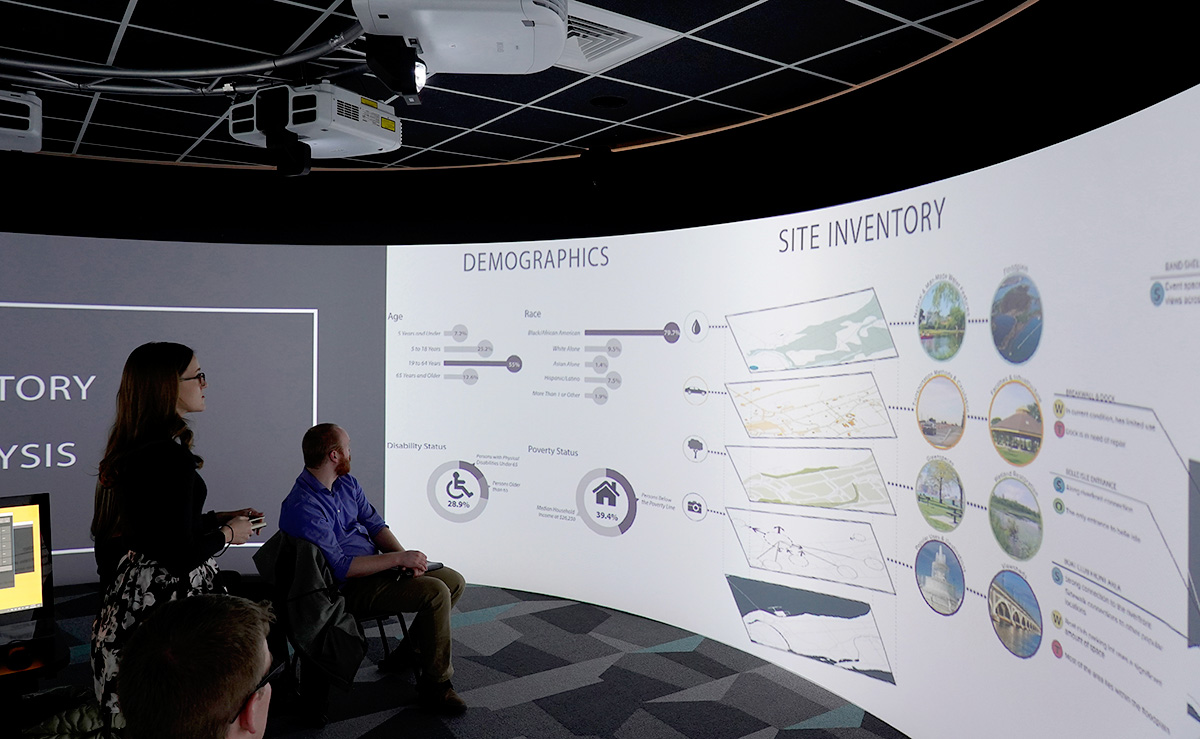

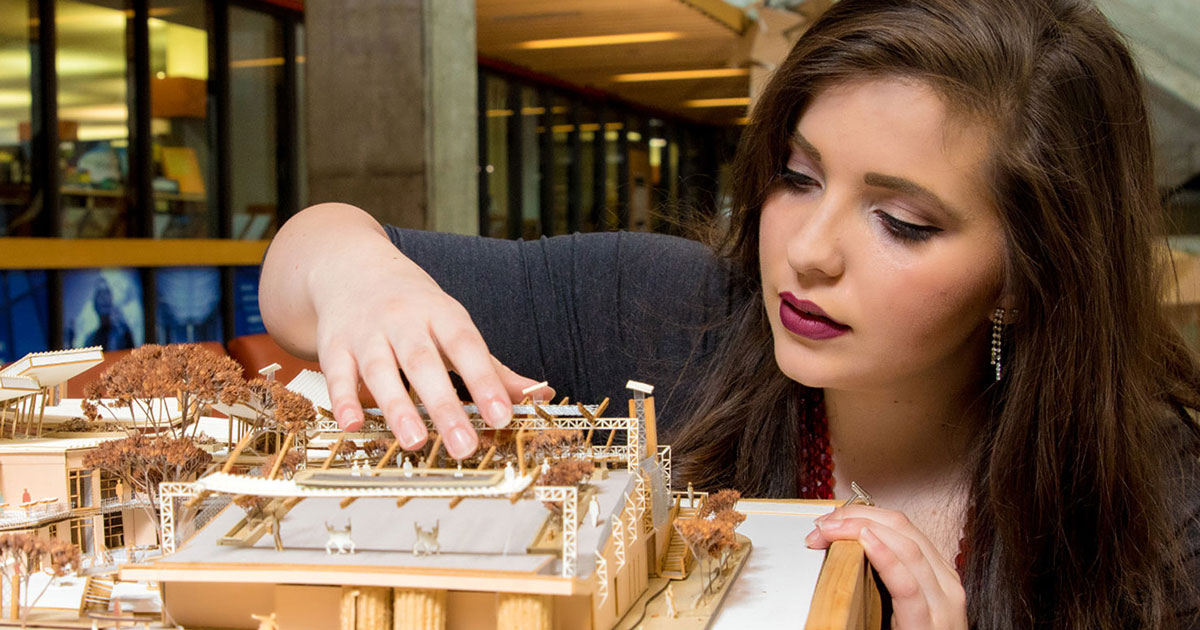


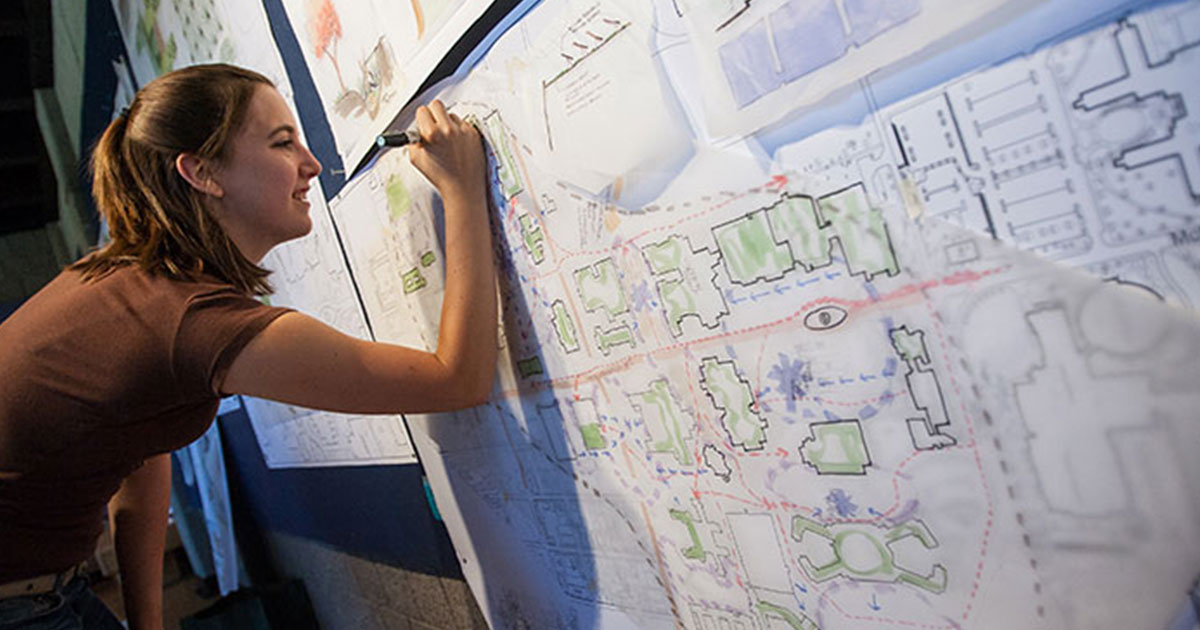


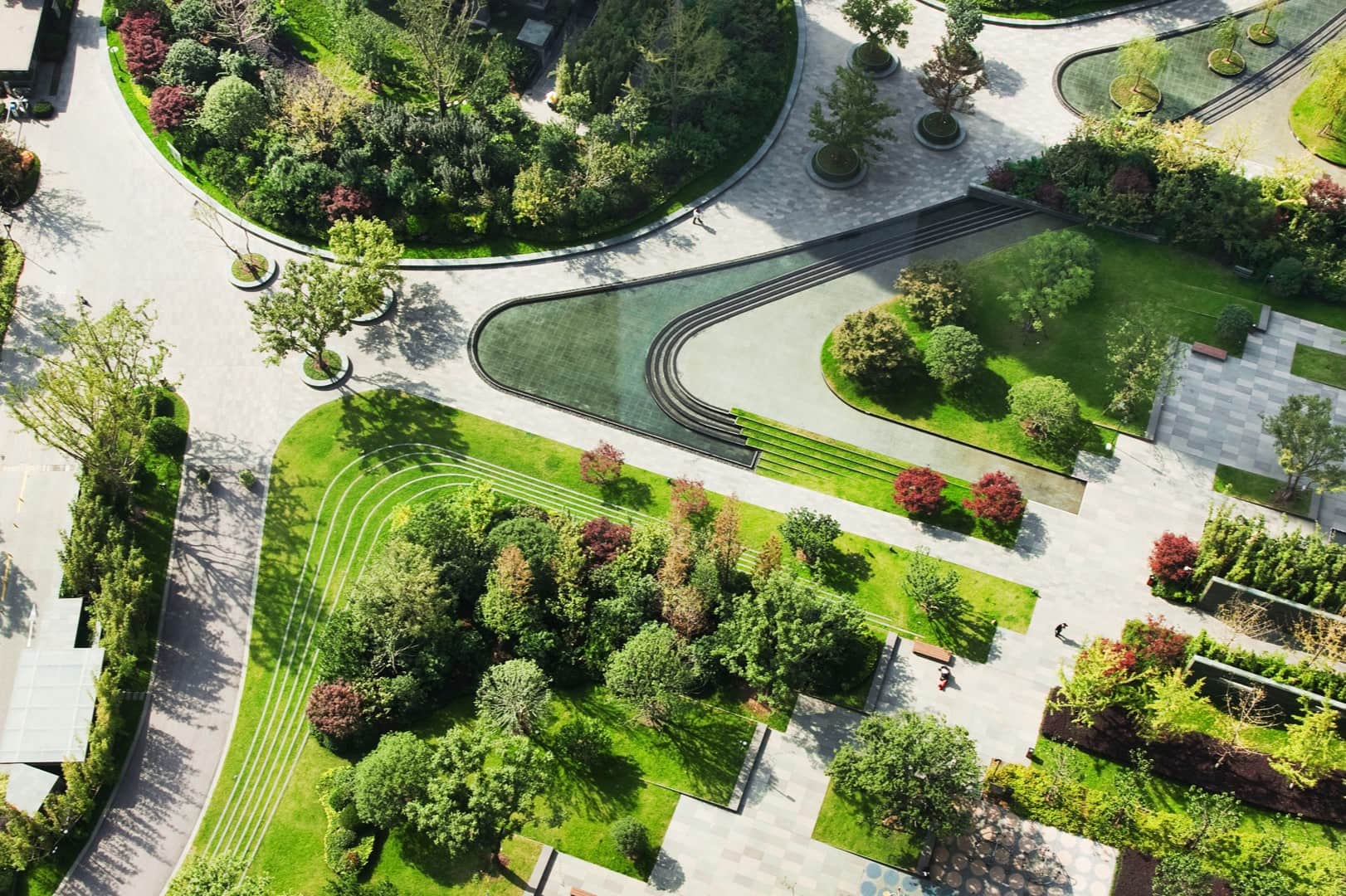
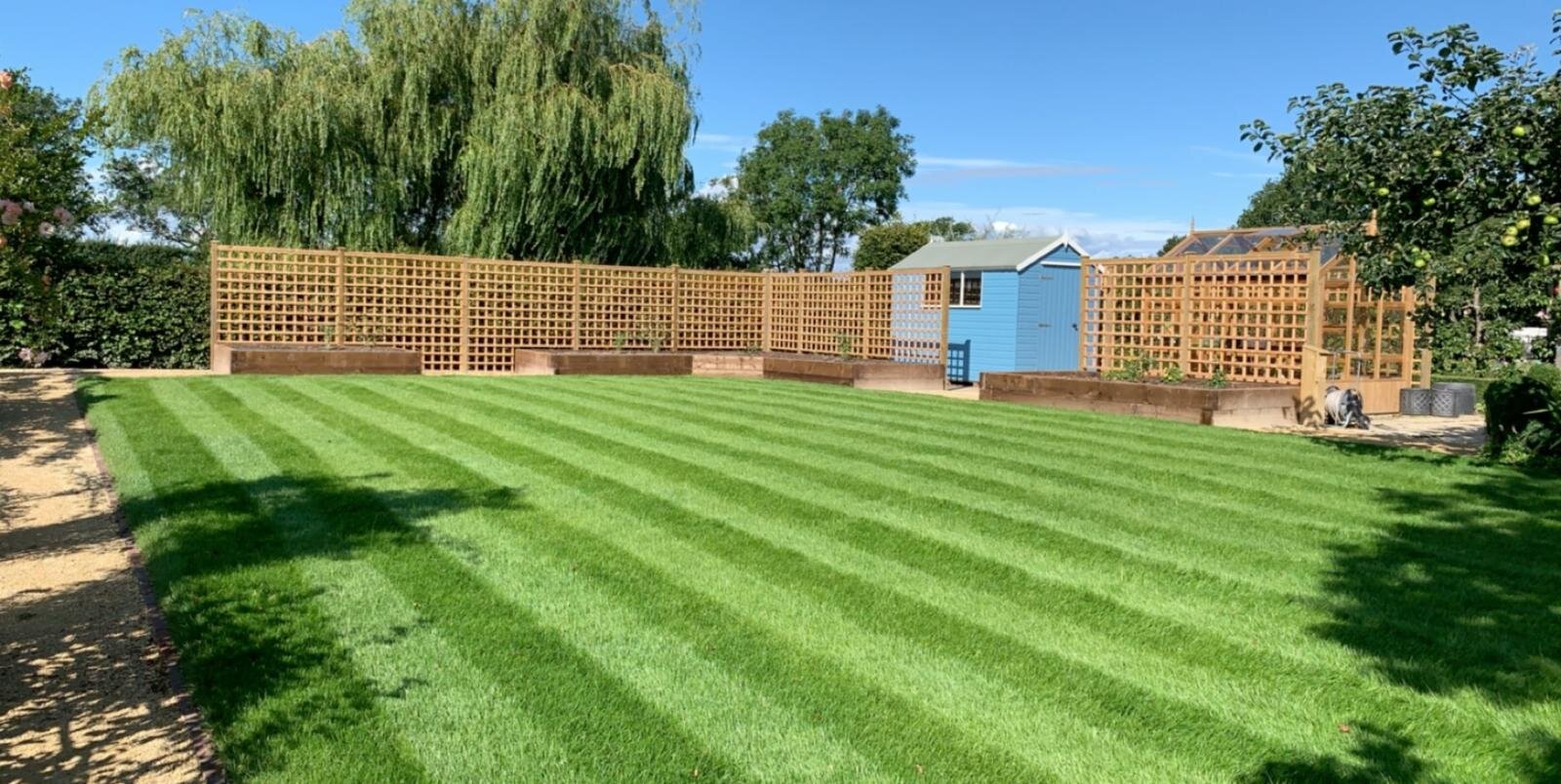
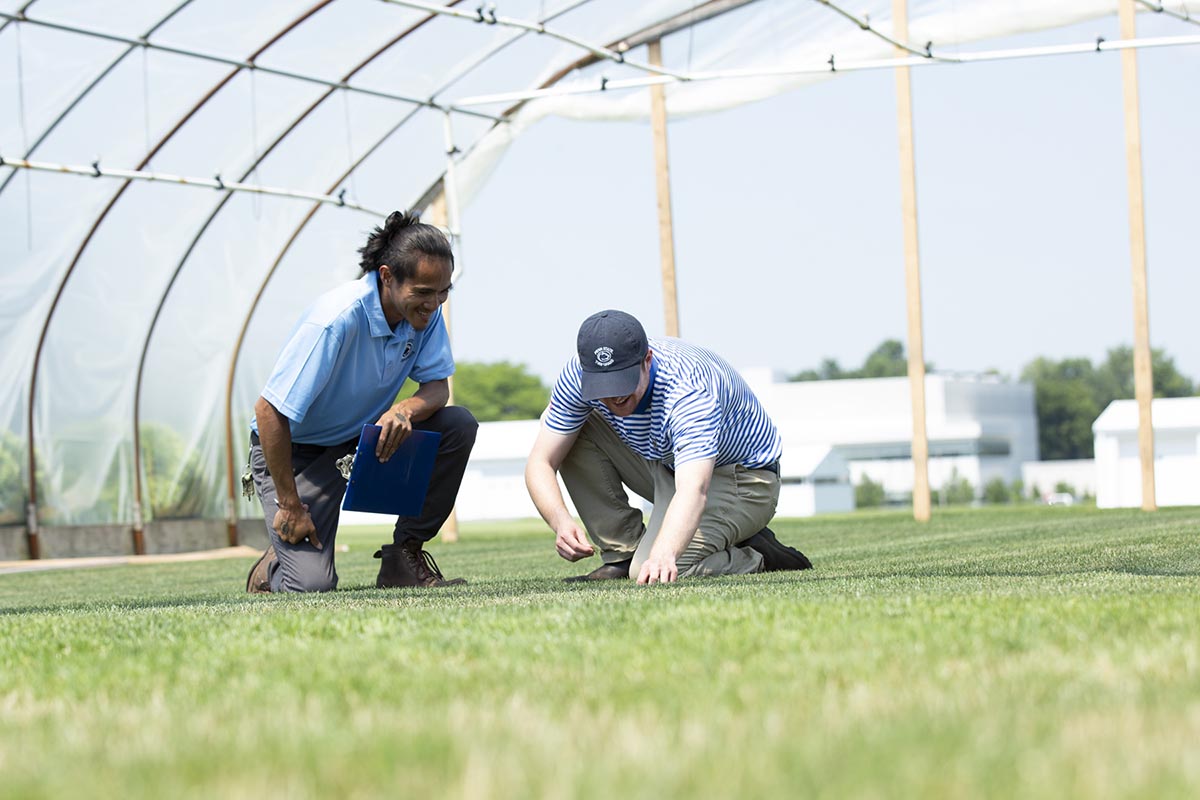

0 thoughts on “What Degree Is Needed For Landscape Design”